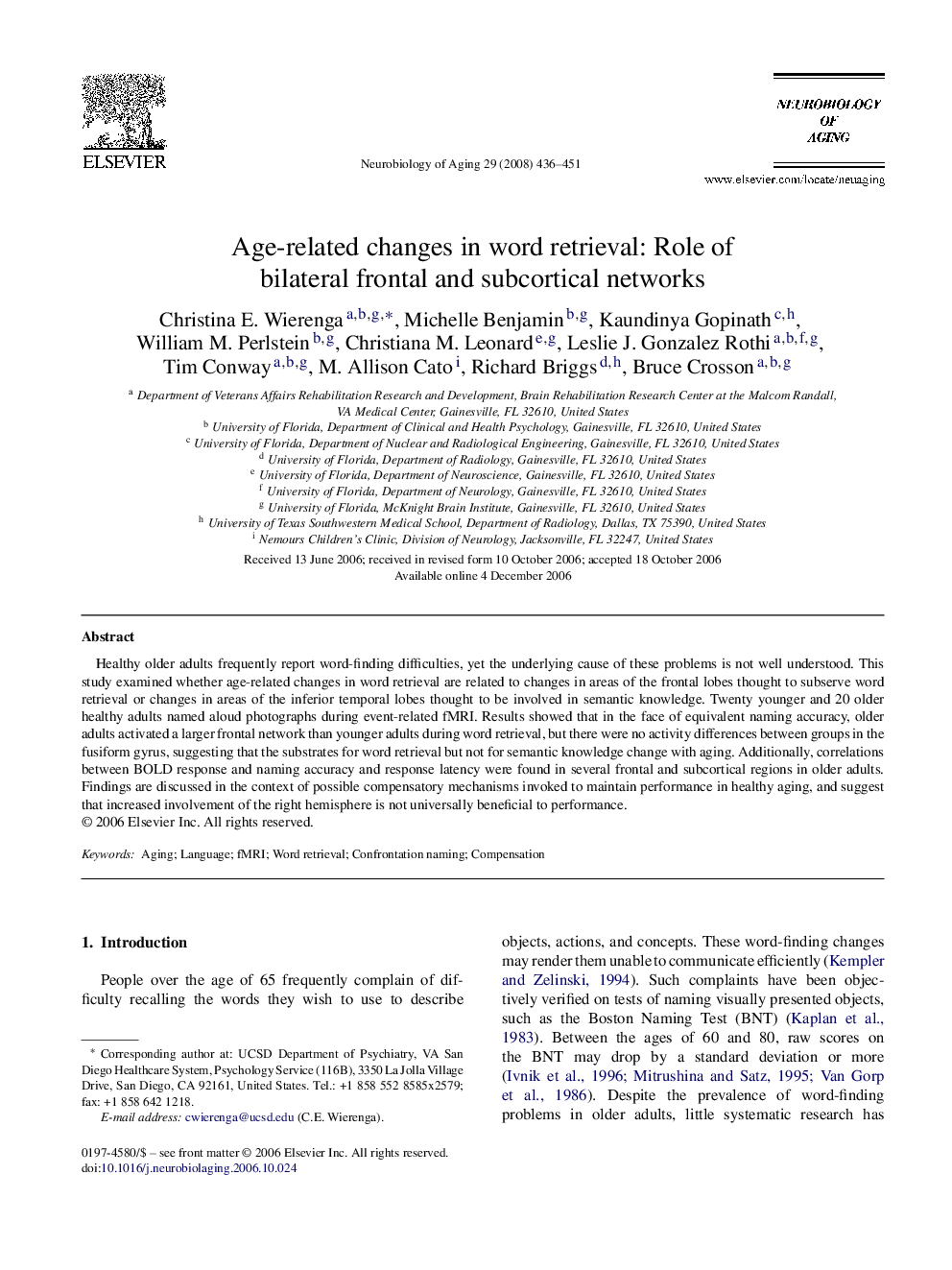| Article ID | Journal | Published Year | Pages | File Type |
|---|---|---|---|---|
| 331314 | Neurobiology of Aging | 2008 | 16 Pages |
Healthy older adults frequently report word-finding difficulties, yet the underlying cause of these problems is not well understood. This study examined whether age-related changes in word retrieval are related to changes in areas of the frontal lobes thought to subserve word retrieval or changes in areas of the inferior temporal lobes thought to be involved in semantic knowledge. Twenty younger and 20 older healthy adults named aloud photographs during event-related fMRI. Results showed that in the face of equivalent naming accuracy, older adults activated a larger frontal network than younger adults during word retrieval, but there were no activity differences between groups in the fusiform gyrus, suggesting that the substrates for word retrieval but not for semantic knowledge change with aging. Additionally, correlations between BOLD response and naming accuracy and response latency were found in several frontal and subcortical regions in older adults. Findings are discussed in the context of possible compensatory mechanisms invoked to maintain performance in healthy aging, and suggest that increased involvement of the right hemisphere is not universally beneficial to performance.
